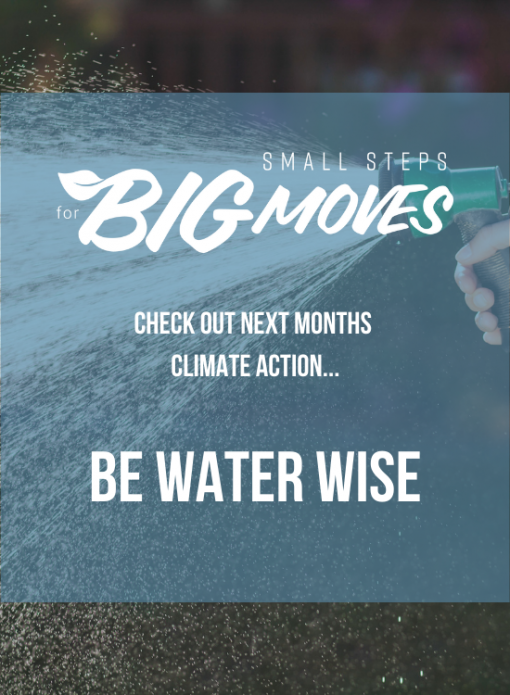
Whistler is Making BIG MOVES for our Climate. When we act together, small steps become BIG MOVES
Whistler’s Climate Action BIG MOVES Strategy identifies the six most impactful action areas we need to focus on as a community to reduce emissions and make Whistler a more climate resilient community. We all have a role to play! The RMOW, in partnership with Whistler’s environmental charity AWARE, has created Small Steps for BIG MOVES: 12 months of climate actions we can each take to support Whistler’s six BIG MOVES.
TAKE ACTION! This June, let’s:
Embrace the Valley Trail
Simple steps (literally) are the key to gaining momentum on BIG MOVE #1: Move beyond the car.
Milder weather and clear sunny skies bring more opportunities to savour our time outdoors. Getting out of our cars and moving our bodies to get to our destination is one of the best ways to embrace the changing seasons and a great action we can take to reduce emissions.
With emissions from private passenger vehicle trips within Whistler making up 54% of Whistler’s emissions, a key to reducing Whistler’s carbon footprint lies in embracing active mobility. Whether we walk, bike, skate, ski, roll or use the bus, Whistler’s Valley Trail offers great options for connecting routes as we move around the valley for work or play.

Ready to take action? Let’s try one (or some) of these Small Steps for BIG MOVES:
1. EMBRACE THE VALLEY TRAIL TO GET AROUND WHISTLER.
Whether it’s a peaceful walk or a bike commute, spending time being active in the fresh air can set you up for success throughout the day. Fortunately Whistler has over 45km of paved car-free valley trail connecting our neighbourhoods and setting us up for success as we seek out ways to embrace active mobility.
Check out Whistler’s Valley Trail map
2. PICK ONE PLACE YOU WILL STOP DRIVING TO.
Whether it’s your place of work, your favourite beach or your best friend’s house, pick a journey where you could trade a personal vehicle and embrace active mobility. Setting the intention by planning your new route is the key first step to change. Challenge your friends and family to do the same.
3. UP YOUR DAILY STEP COUNT GOAL.
If you track your daily step count or daily distance covered on a wearable device or smartphone, challenge yourself to increase your daily goal. You could even engage in some friendly competition at your office or with friends.
4. TAKE MEETINGS MOBILE.
If there is one thing covid has taught us, it is that there are many great options to stay connected without having to travel. Considering meeting formats in advance gives us the chance to reduce travel as well as embrace alternative ways of meeting. Can you trade the video call for a neighbourhood walk and phone talk? Mobile meetings are a great way to stay connected not just with each other but the creative part of our brain.
Check out these ideas for doing walking meetings right: https://hbr.org/2015/08/how-to-do-walking-meetings-right
5. STAY SAFE AND GO FOR COMFORTABLE GEAR.
Be sure to stay safe as a cyclist or pedestrian by being careful at intersections/road crossings, being visible/reflective in the dark and following signs and traffic signals. Here are some more pedestrian safety tips.
Whatever your active transportation choices, gathering the right gear can be a game changer. Walking is simply more enjoyable with comfy shoes, biking is easier with rain gear than an umbrella, a warm coat can keep bus stop pauses cozy. Whichever active mobility options you choose, getting the right gear can be a key to success.
Take a Stroll/Scroll Through these Quick Facts
Simply by taking to the sidewalk we are taking small steps to act for climate.
In fact emissions from private passenger vehicle trips within Whistler make up 54% of Whistler’s carbon footprint.
Ditch the unnecessary parking worries and save yourself the time of searching on streets, in lots, or in mass parking garages.
Rethinking our short trips can lead to big change – whether it’s the school run, daily dog park destination or quick stops to the grocery store there are often ways we can decarbonize our habits.
With more people walking consistently, traffic noise can be reduced, providing health benefits not only for the environment but also humans and other animals.




